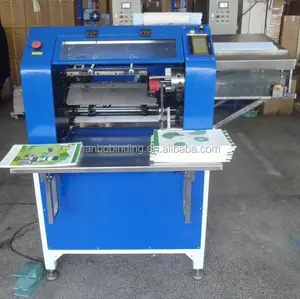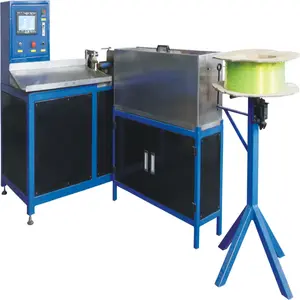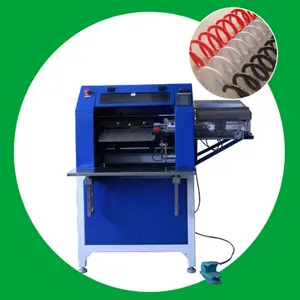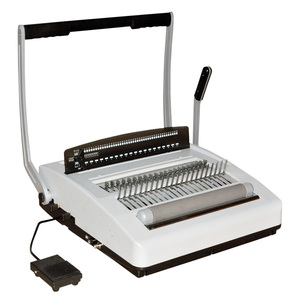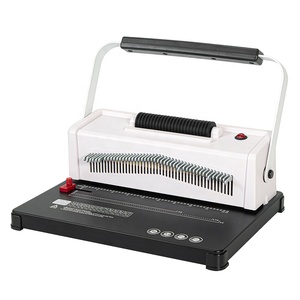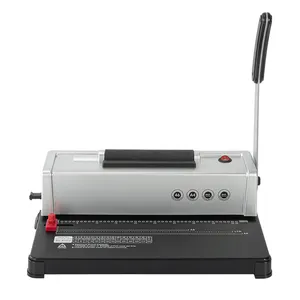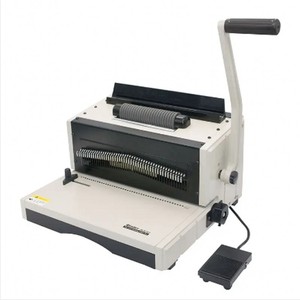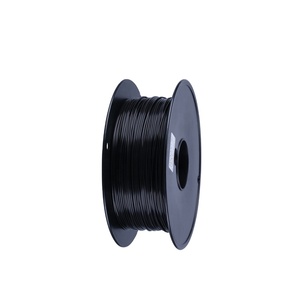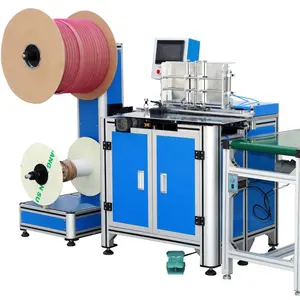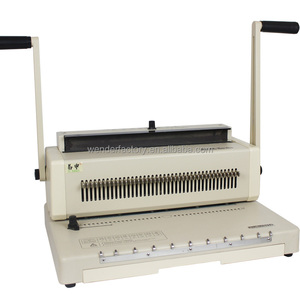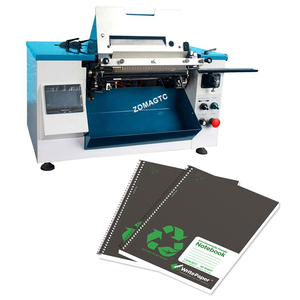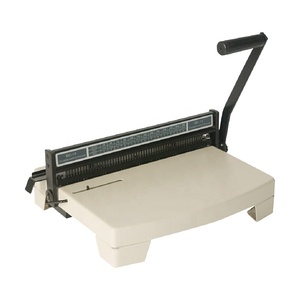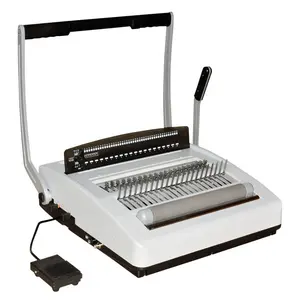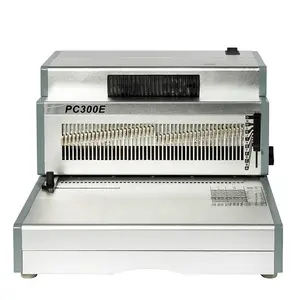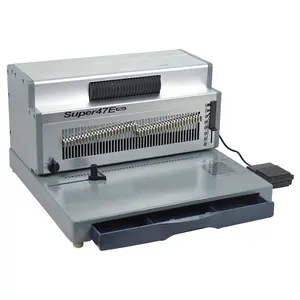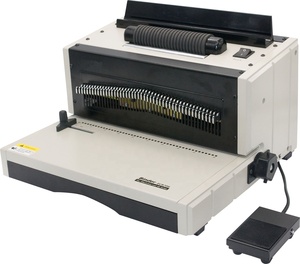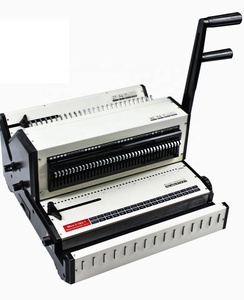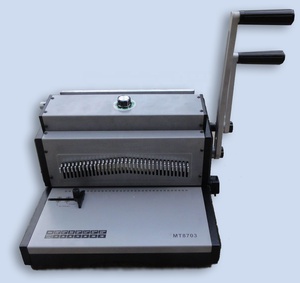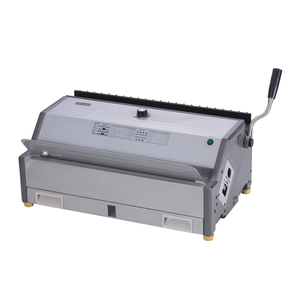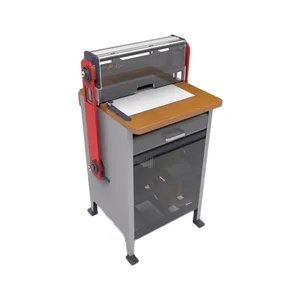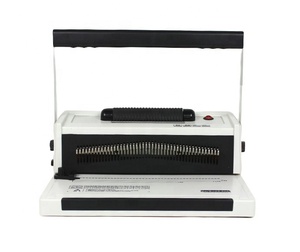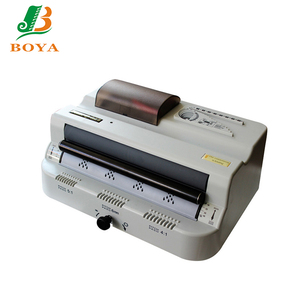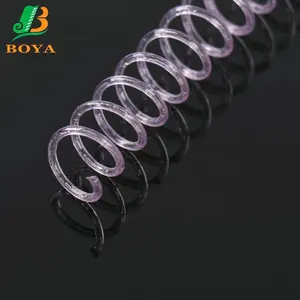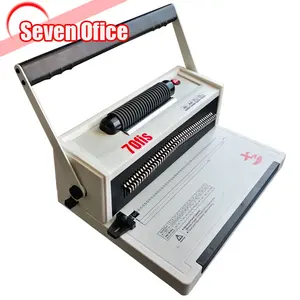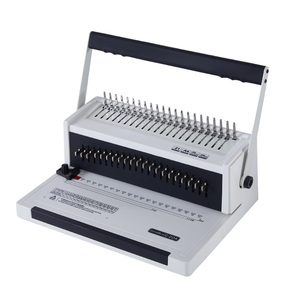Plastic Coil Binding Machine Producer


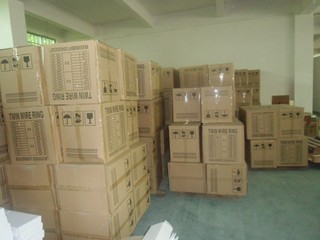






 1/45
1/45


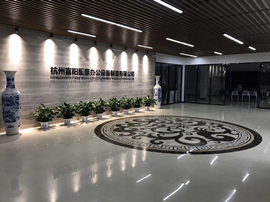


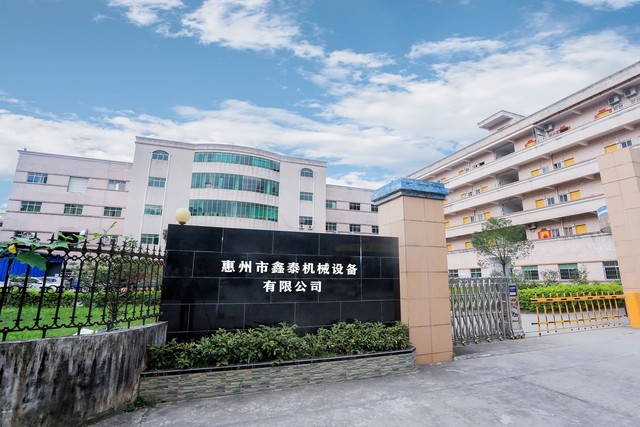










 1/15
1/15







 1/10
1/10

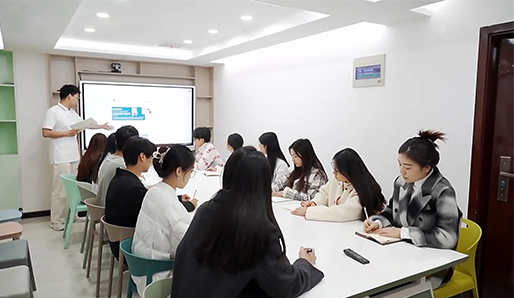



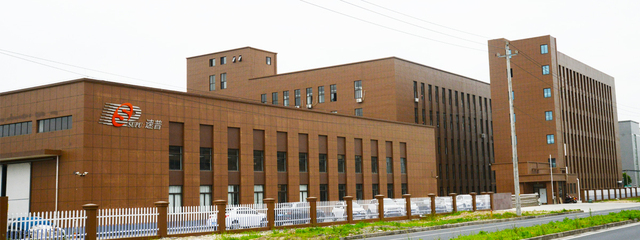










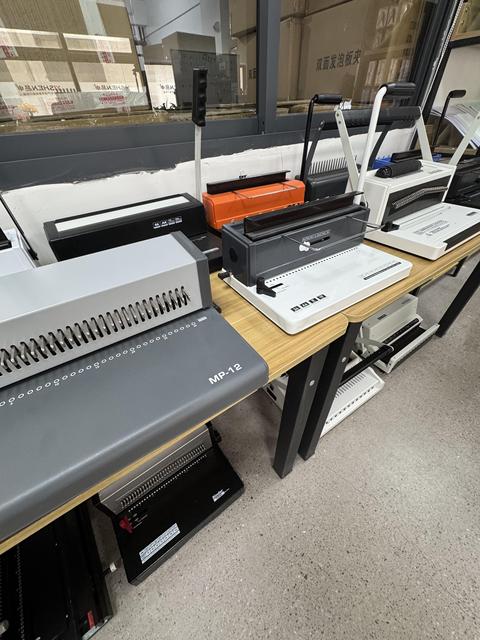

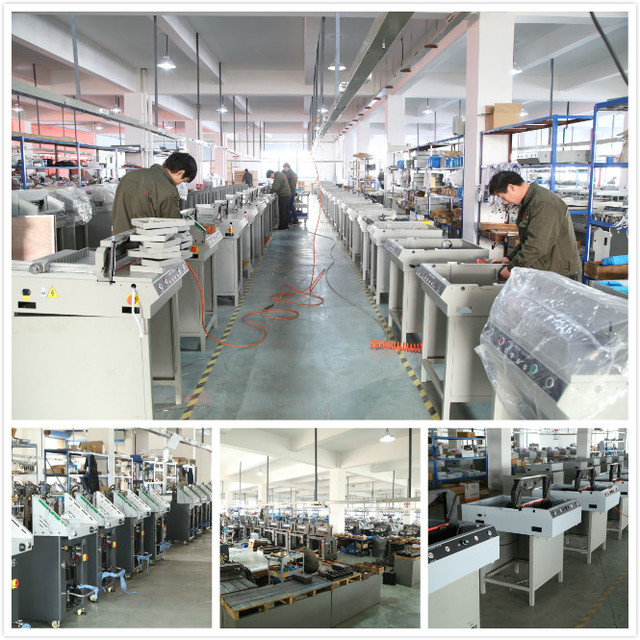



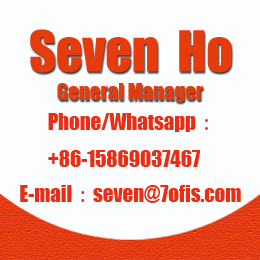


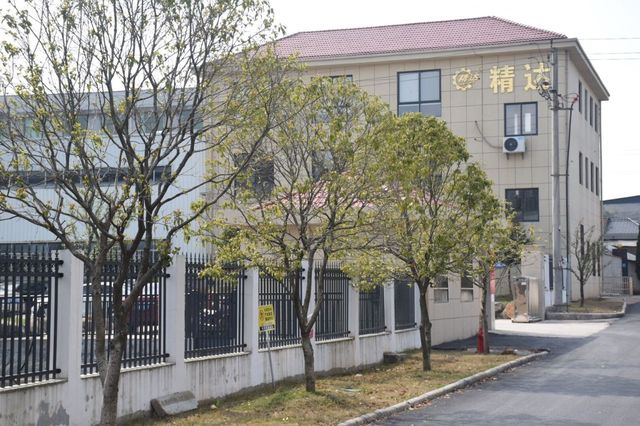







 1/19
1/19
About plastic coil binding machine producer
Where to Find Plastic Coil Binding Machine Producers?
China remains the global hub for plastic coil binding machine manufacturing, with key production clusters concentrated in Guangdong and Zhejiang provinces. Dongguan and Shenzhen in Guangdong serve as centers for industrial-grade equipment, hosting vertically integrated facilities that combine mechanical engineering with precision plastic extrusion capabilities. Hangzhou in Zhejiang specializes in mid-range office automation machinery, offering cost-efficient solutions supported by mature supply chains for paper processing components.
These regional ecosystems enable streamlined production through localized access to CNC machining, mold fabrication, and polymer sourcing. Suppliers benefit from compact logistics networks—many operating within 50km of component vendors—reducing lead times to 20–35 days for standard orders. Buyers gain scalability advantages, with select manufacturers reporting monthly outputs exceeding 1,000 units. Cost efficiencies range from 25–40% compared to Western or Southeast Asian producers, driven by automation integration and bulk material procurement.
How to Choose Plastic Coil Binding Machine Producers?
Effective supplier selection requires rigorous evaluation across technical, operational, and transactional dimensions:
Technical Capability Verification
Confirm production scope includes both manual and automated models (e.g., semi-automatic A3/A4 binders, high-speed industrial lines). Prioritize suppliers with documented experience in spiral coil forming, hole punching alignment, and motorized feeding systems. While explicit ISO 9001 certification is not uniformly listed, consistent on-time delivery rates above 90% indicate functional quality management systems.
Production Infrastructure Assessment
Evaluate capacity indicators such as facility scale and R&D investment. Leading producers operate multi-thousand-square-meter plants equipped with in-house tooling and assembly lines. Cross-reference product listings with response times (≤2–4 hours) and reorder rates—suppliers like Hangzhou Fuyang Sigo Office Supplies Co., Ltd. report a 28% reorder rate, signaling customer retention and reliability.
- Minimum viable factory output: 200+ units/month
- In-house engineering support for customization (coil diameter adjustment, voltage compatibility)
- Integration of plastic extrusion or coil-forming technology for end-to-end control
Procurement Risk Mitigation
Utilize incremental ordering strategies backed by sample testing. Minimum Order Quantities (MOQs) vary significantly—from 1 piece for entry-level desktop models to 5 pieces for heavy-duty automatic machines. Validate durability through cycle testing, particularly for gearboxes and punch mechanisms. Use platform-based transaction safeguards where available, ensuring payment terms align with shipment milestones.
What Are the Top Plastic Coil Binding Machine Producers?
| Company Name | Location | Main Products | Price Range (USD) | Min. Order | On-Time Delivery | Avg. Response | Reorder Rate | Online Revenue |
|---|---|---|---|---|---|---|---|---|
| Dongguan Nanbo Mechanical Equipment Co., Ltd. | Guangdong, CN | Automatic Plastic Spiral Binders, Heavy-Duty Industrial Machines | $25–7,000 | 1–5 sets/pieces | 100% | ≤3h | <15% | $10,000+ |
| Shenzhen Hongyuan Stationery Co., Ltd. | Guangdong, CN | Double-Coil Spiral Forming, Customizable Binders | $800–9,000 | 1 set/piece | 90% | ≤2h | <15% | $20,000+ |
| Hangzhou Fuyang Sigo Office Supplies Co., Ltd. | Zhejiang, CN | Commercial A3/A4 Binders, Multi-Function Units | $28.50–1,900 | 1–4 units | 100% | ≤2h | 28% | $270,000+ |
| Huizhou Xintai Machinery Equipment Co., Ltd. | Guangdong, CN | Entry-Level Plastic Spiral Coilers | $27–58 | 1 piece | 100% | ≤4h | <15% | $7,000+ |
| Dongguan Ganghua Bookbinding Equipment Co., Ltd. | Guangdong, CN | Single/Dual Loop Wire & Plastic Binders | $350–8,000 | 1 set | 100% | ≤2h | 26% | $40,000+ |
Performance Analysis
Dongguan-based manufacturers dominate high-end production, offering industrial automation and large-format binding lines priced up to $8,000. Shenzhen Hongyuan stands out for customization flexibility, supporting color, logo, and packaging modifications. Hangzhou Fuyang Sigo demonstrates strong market trust with a 28% reorder rate and broad product segmentation—from $28 handheld units to $1,900 commercial systems. All top-tier suppliers maintain 100% on-time delivery except Shenzhen Hongyuan (90%), though its sub-2-hour response time compensates for slightly lower repeat order volume. Suppliers with higher online revenue ($40,000+) typically offer diversified portfolios including laminators, trimmers, and hole punches, enhancing cross-selling potential.
FAQs
What certifications should plastic coil binding machine producers have?
While specific ISO or CE certifications are not explicitly stated in available data, buyers should request compliance documentation for electrical safety and mechanical operation, especially for export to regulated markets. Functional equivalents include adherence to GB/T standards and internal QC protocols verified through video audits.
What is the typical MOQ and lead time?
MOQ ranges from 1 piece for basic models to 5 pieces for automated systems. Lead times average 20–30 days post-deposit, with express production options available for pre-stocked configurations.
Can suppliers customize voltage, language, or branding?
Yes, multiple suppliers—including Shenzhen Hongyuan and Dongguan Nanbo—offer OEM services covering control panel language, motor voltage (110V/220V), and branded labeling. Custom tooling for unique coil diameters may require NRE fees and extended timelines.
Do producers offer samples?
Samples are generally available at full or partial cost, depending on machine complexity. Desktop models may be supplied at near-production pricing, while industrial units often require cost recovery agreements. Sample turnaround averages 10–18 days.
How to verify manufacturing authenticity?
Request facility walkthrough videos, machine serial numbers, and production logs. Confirm ownership of core processes such as coil extrusion or die-cutting. Analyze transaction history via verifiable revenue metrics and buyer feedback focused on defect rates and after-sales responsiveness.






